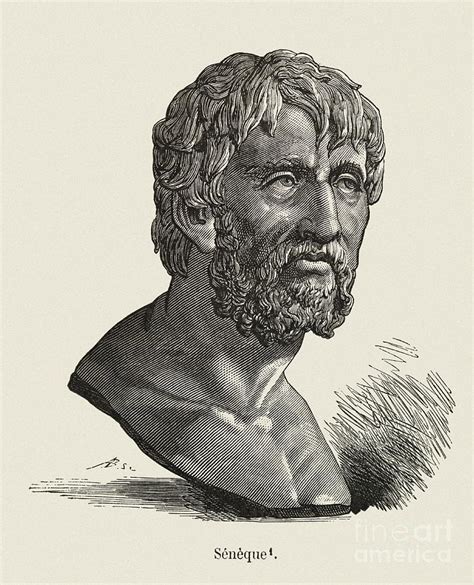A Quote by Seneca the Younger
No man is nobler born than another, unless he is born with better abilities and a more amiable disposition. They who make such a parade with their family pictures and pedigrees, are, properly speaking, rather to be called noted or notorious than noble persons. I thought it right to say this much, in order to repel the insolence of men who depend entirely upon chance and accidental circumstances for distinction, and not at all on public services and personal merit.
Quote Topics
Related Quotes
We must accept what science tells us, that man was born from the earth. But, more logical than the scientists who lecture us, we must carry this lesson to its conclusion: that is to say, accept that man was born entirely from the world - not only his flesh and bones but his incredible power of thought.
My wish and hope, every year, is that people's life chances - their chances of having a happy, prosperous, healthy life for themselves and their family and friends - should not depend on accident of birth. It shouldn't depend on where you're born. It should depend on who you are and what you do. But it shouldn't depend on the chance and the luck of being born in the U.S. or in a poor village in Sub-Saharan Africa or India or wherever it may be.
Some men are born mediocre, some men achieve mediocrity, and some men have mediocrity thrust upon them. With Major Major it had been all three. Even among men lacking all distinction he inevitably stood out as a man lacking more distinction than all the rest, and people who met him were always impressed by how unimpressive he was.
I would say basically the commonplace observation that kids aren't going to earn as much as their parents is now is a coin flip at this point. Are you going to do better than your parents? It's a 50-50 chance, whereas if you were born in the 1940s or 1950s, you had more than a 90 percent chance you were going to do better than your parents. So basically almost a guarantee for most kids that you were going to achieve the American Dream of doing better than your parents did. Today, that's certainly no longer the case.
If idioms are more to be born than to be selected, then the things of life and human nature that a man has grown up with--(not that one man's experience is better than another's, but that it is 'his.')--may give him something better in his substance and manner than an over-long period of superimposed idiomatic education which quite likely doesn't fit his constitution. My father used to say, 'If a poet knows more about a horse than he does about heaven, he might better stick to the horse, and some day the horse may carry him into heaven'
I have traveled to a lot of places, and you look at another young person who lives under very different circumstances than you but has the same dreams or the same interests or might be better at what I do than what I do. But I was born in a different place, and she was born in a different place. Just for that alone, you're kind of inherently given opportunity. That's something that I'm very grateful for, but I'm also very aware of.
Here's the thing: the unit of reverence in Europe is the family, which is why a child born today of unmarried parents in Sweden has a better chance of growing up in a house with both of his parents than a child born to a married couple in America. Here we revere the couple, there they revere the family.
The psychology of the saver and the psychology of the investor is very closely connected with Keynes' distinction between risk and uncertainty. When the future is uncertain, he thought that a lot of saving would be directed towards securing, securing more, getting more security in the present, rather than building wealth in the future, which was the classical view, you save in order to invest, in order to consume more later on. What he had called the propensity to hoard or liquidity preference would normally be stronger than the inducement to invest.








































